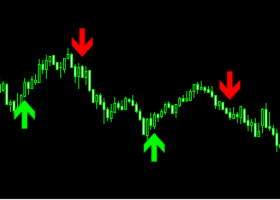
(15 JUNE 2019)THE THOUGHT OF WEEKEND 2:Staying invested through the tech war
While the Chinese technology sector is again in the center of the tit-for-tat exchange between the two nations, UBS Global Wealth Management CIO believes that there are still pockets of opportunities.
These are, specifically, the software and e-commerce sectors, as they are less exposed to escalating trade tensions and should benefit from further policy support, the team says in an 11 June report.
The government will also continue support domestic technology pioneers, especially the leading players in semiconductor, IT security and infrastructure software segments.
The ban on Chinese tech giant Huawei on 16 May in the meantime backs the team's view that the relationship between the US and China is entering a "new paradigm" likely to feature long cycles of talk-fight-talk.
In the short term, all eyes are on the G20 summit on 28-29 June in Osaka, Japan. There has so far been no announcement of any meeting between US President Donald Trump and his Chinese counterpart Xi Jinping.
"Our original projection of a 20% chance for the two sides to reach a deal is diminishing," CIO says. "If they don't, it would increase the probabilities for a partial deal after a bumpy negotiation process (to 62.5%) by the end of the year and a complete breakdown in negotiations (to 37.5%)."
In the breakdown scenario, Chinese assets, including the CNY, equities and bonds, could sell off. If the process is bumpy, assets will eventually rebound when a deal is reached.
Given that CIO's base case remains a deal by the year-end, investors should stay in the market but hedge the downside risk, the team says.
Fixed income investors could consider moving up in quality and lower in duration for high-yield bonds amid the market volatility, after the strong 6-percent gain year-to-date, CIO adds.
Chinese USD bonds were resilient in May despite the trade-war escalation, with the JPMorgan Asian Credit Index gaining 1 percent in May.
For the rest of the year, CIO's fixed-income team expect spreads to be range-bound and maintain its full-year return estimates of 5–6 percent for investment-grade and 11–12 percent for high-yield credit.
Meanwhile, CIO is confident that the USDCNY will stabilize and drift lower towards 6.7–6.8 over 6–12 months, even if slowing growth and trade tensions will likely push USDCNY to 7.0 over the next three months.
"To manage near-term currency risks, we reiterate our guidance to hedge CNY long exposure over the next three months," CIO says.
By UBS)


